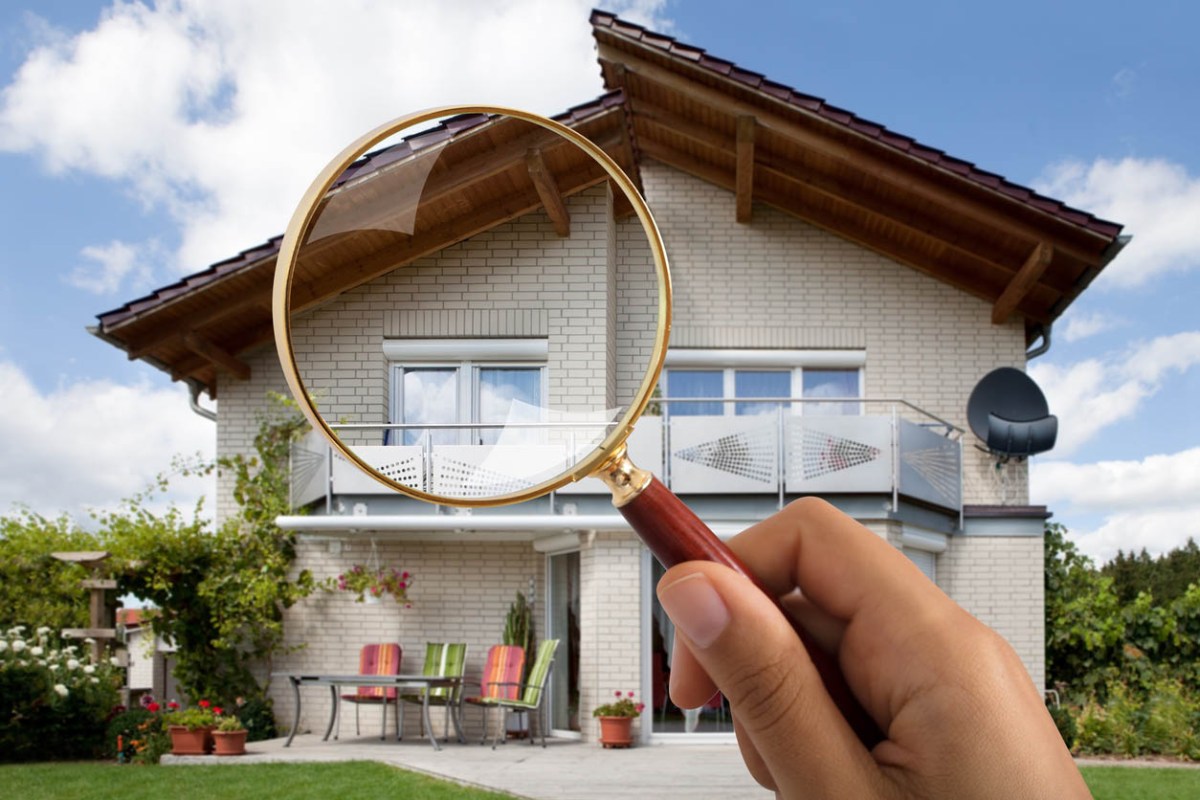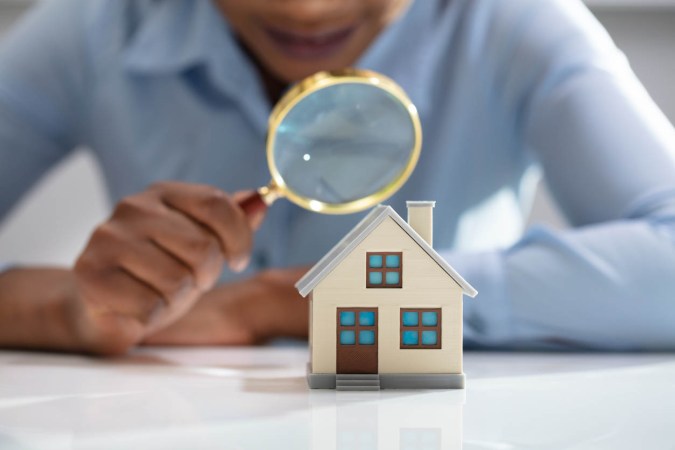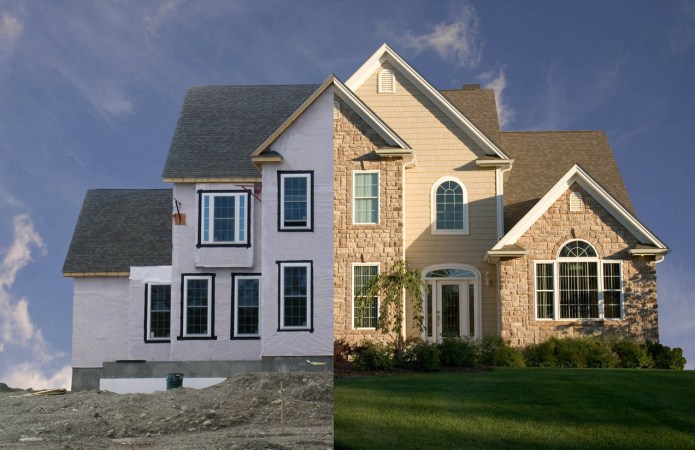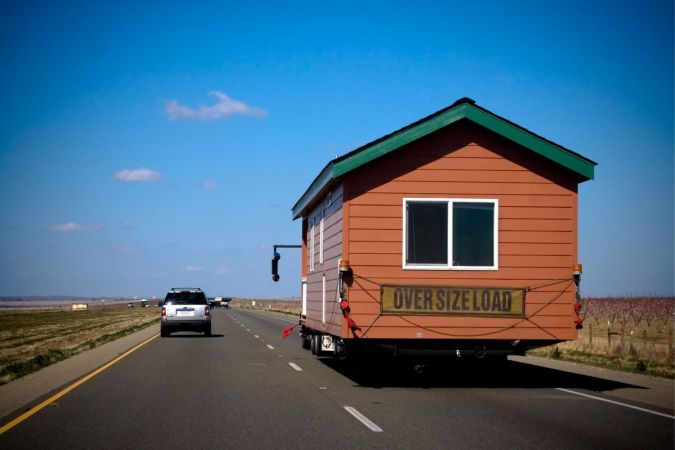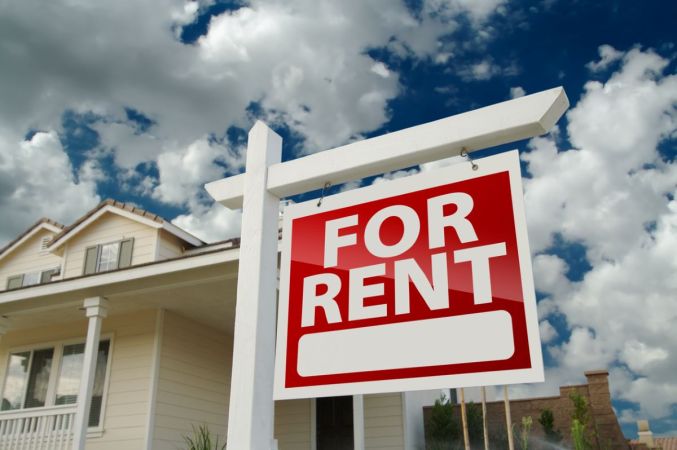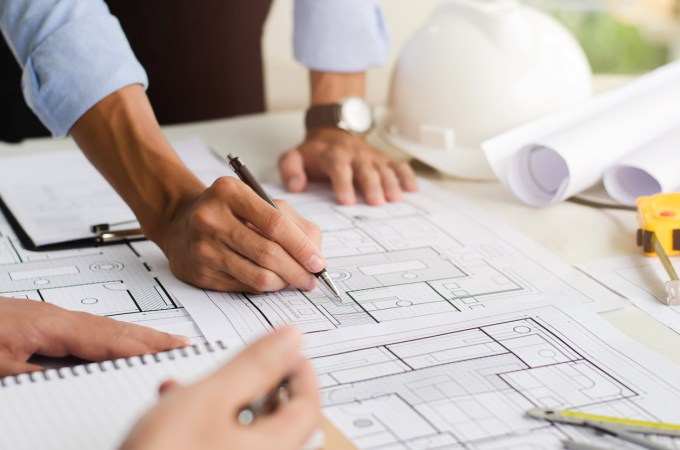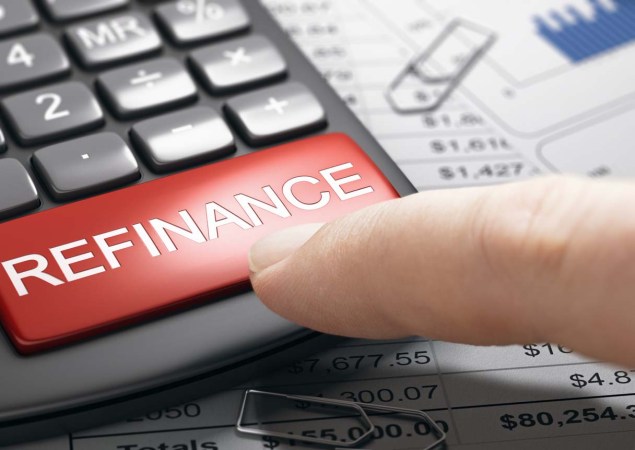We may earn revenue from the products available on this page and participate in affiliate programs. Learn More ›
- Typical Range: $279 to $399
- National Average: $338
You’ve found the home of your dreams, made an offer, and are ready to sign a contract—but first, your real estate agent suggests a home inspection. Or perhaps you’re getting ready to put your home on the market and want to avoid any potential surprises, so you’re considering a property inspector to help determine any repairs. But most people are a little vague on what, exactly, home inspectors do. How much does a home inspection cost? What is included? What should you do with the results?
Home inspections can be incredibly beneficial for current homeowners. They can either reassure buyers that they’ve made a good selection, give them ammunition to negotiate a sale price, or warn them away from making a purchase that will cost a bundle in repairs down the road.
What Is a Home Inspection, and What Does It Cover?
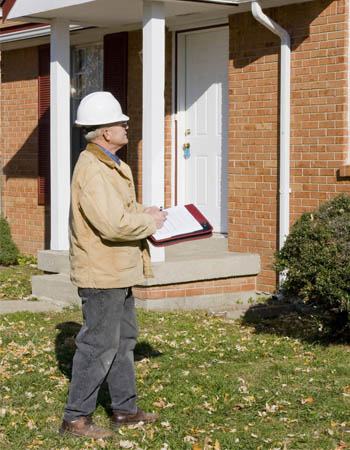
A home inspection is a process in which a trained professional visually inspects a property. The inspector’s job is to ensure that the home’s major systems are working correctly, are in good condition, and meet local codes. These systems include the structure, electrical, mechanical, HVAC, and plumbing. The inspector will take a close look at the connections for and service of utilities. Age, function, and condition of major appliances are items usually included in the inspection, and the inspector will also assess fire safety and look for termites or other damaging infestations. A written report that notes defects follows the inspection. This report indicates if there are safety issues that require repair along with any major or minor flaws. The report will also include any items that are acceptable at the time of the inspection but need to be monitored.
While an inspector might stick their head into a crawl space or plumbing access door, a home inspection is a surface-level inspection and is not a guarantee that the home is in perfect condition. Unless required by law, inspections will not automatically cover testing for radon gas, asbestos, mold, or lead paint, though these can usually be added on as separate costs. House inspection costs also will not cover problems inside the walls that can’t be seen.
Especially if you’re about to invest in a house, you’ll probably feel like you’re already pouring money out faster than you’d imagined possible. The inspection may seem like just another expense. However, a home inspection will likely save you money in the long run; the inspector may find that a beautiful home hasn’t been maintained in years, which could end up saving you thousands in repairs. Conversely, the inspector may just find smaller defects that you can use to negotiate with a seller.
Factors in Calculating Home Inspection Cost
While some companies may offer a flat rate for an inspection, most of them have a home inspection cost scale based on several factors.
Location
Where you live will make a difference in the average cost of an inspection. Searching “home inspection near me” should give you a general idea of the cost. Cities in the northeast have higher average costs than other areas, coming in between $400 and $500, while midwestern and West Coast cities move toward the lower end of the average range.
Property Type
Because different homes have different concerns, the kind of home being inspected can have a significant impact on the cost. The overall average for a single-family home inspection cost is $338. Condominiums or townhouses generally cost less to inspect (about $200) depending on their size and other factors. Mobile home inspections average around $250; even if they’re smaller than a condominium or a single-family home, mobile homes have different structures to evaluate. If the mobile home is a double- or triple-wide, it may be more expensive. A Veterans Affairs inspection does not affect the cost overall: Those inspection costs will be based on other factors about the home.
New construction homes are by far the most challenging and expensive to inspect. While the home is new, and you may feel that it doesn’t require an inspection—especially because all systems have been inspected along the way to clear permits—remember that none of the systems have been used yet, so no problems have been detected. It’s a good idea to have an inspection performed on the entire house by one person to double-check that everything is properly in place and functioning well. New home inspections cost approximately $400.
Size of Home
Larger homes have more systems, access points, and material to analyze, so it stands to reason that their inspections will cost more simply based on the time it will take to complete. Homes between 1,000 and 2,000 square feet will ring up at about $315 to inspect, while homes larger than 2,000 square feet can range to $400 and more.
Age of Home
Older homes will require a longer inspection than new ones. Structures and systems will have normal wear and tear present, and the inspector will need some time to distinguish between normal aging and damage. Older homes may also have some outdated systems or panels that require research or careful inspection. As a result, older homes may cost more to inspect.
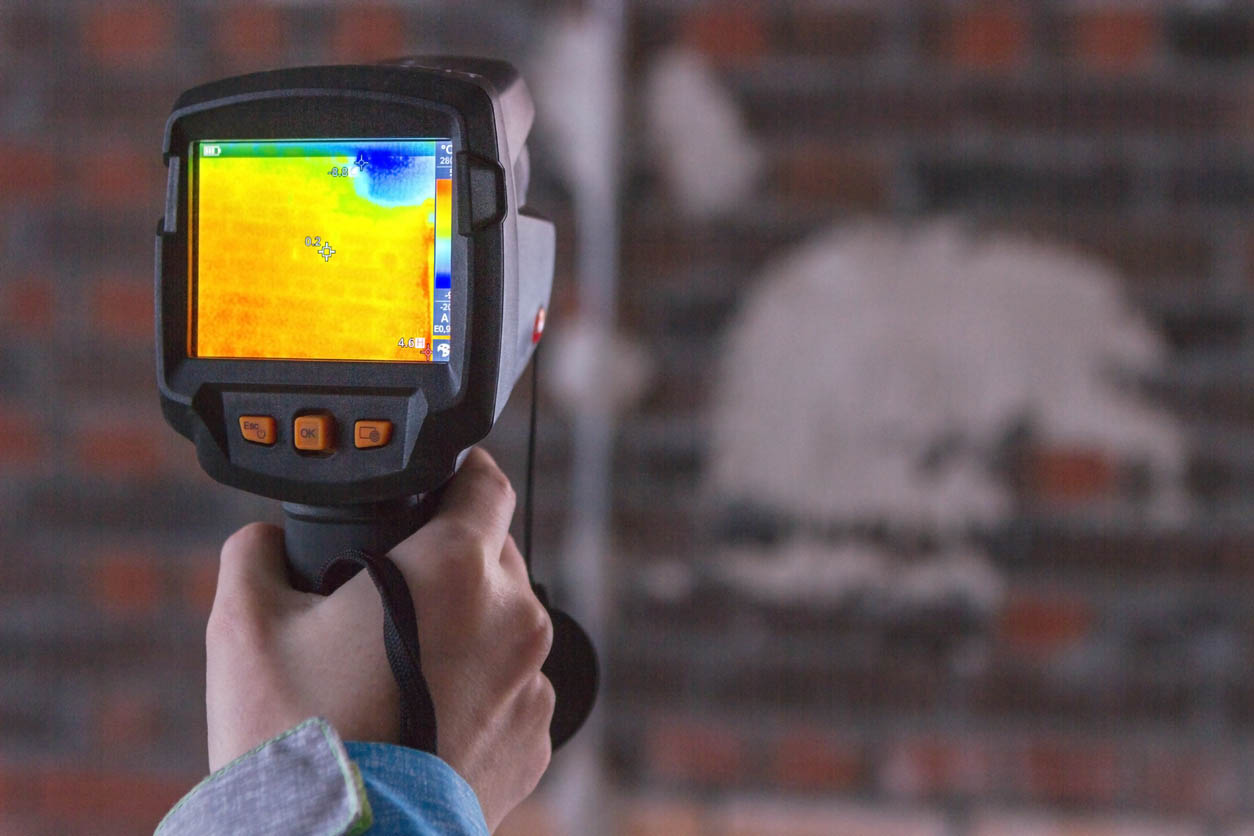
Additional Costs and Considerations
Before you sign a contract, an inspector will provide a comprehensive quote. Be aware of some other costs that may be itemized on the contract as additional expenses beyond the scope of the basic inspection.
Crawl Space
While some inspectors include crawl spaces into the total cost, others list those separately and charge for them. This is more common with exterior crawl spaces. Request that the sellers clear the crawl spaces of items in storage before the inspection (or clear them yourself if you own the home). Inspectors can only assess what they can see, so for a crawl space inspection to be thorough, it should be cleared of obstructions.
Thermal Imaging
In a thermal inspection, the inspector uses a heat-imaging camera to identify areas of heat and energy loss, moisture and ventilation problems, electrical issues, structural concerns, and thin or missing insulation, along with rodent or termite infestations. Thermal imaging will add approximately $250 to the inspection cost but may save you a considerable amount of money down the line by alerting you to pest and structural problems before they’re overwhelming. If you’re the homeowner, a thermal imaging inspection can pinpoint areas where heat and cooling are being lost so you can address those spots with extra insulation, saving on energy costs.
Appraisal Costs
If you’re purchasing a home and taking out a mortgage, the bank will require you to have the house appraised so they can balance the amount you’re borrowing against the actual value of the home, which will serve as your collateral for the loan. Appraisers have specialized training, but inspectors and appraisers often work together or can bundle the costs of the two services if you use the same company for both. An appraisal costs between $300 and $600 on its own; combining the appraisal and inspection will cost an average of $750.
Other Factors
Inspectors generally work in a particular market and are therefore accustomed to the problems and concerns of the homes in the areas they know well. Some inspectors even specialize in a particular style of home. If your home is unique for the area or one that the inspector is less familiar with, the inspection may take longer and be more expensive. When you’re selecting an inspector, ask how familiar they are with your style of house. More experienced inspectors may charge more than those new to the job; you’re paying for the fact that they have seen more homes and more problems. They may see things that are less obvious to newer inspectors. And if your home is off the beaten path or far from the location of the inspector’s office, you’ll be paying a premium for the travel time to and from your home. Choosing a local office may cut down on costs.
The local real estate market can also play a role in the cost of a home inspection. In a hot market, where buyers may even waive inspections to win a bidding war, inspectors will be busy, and the cost will go up as a result of the demands on their time. In a slow market, inspectors may drop their costs in order to compete with other inspectors.
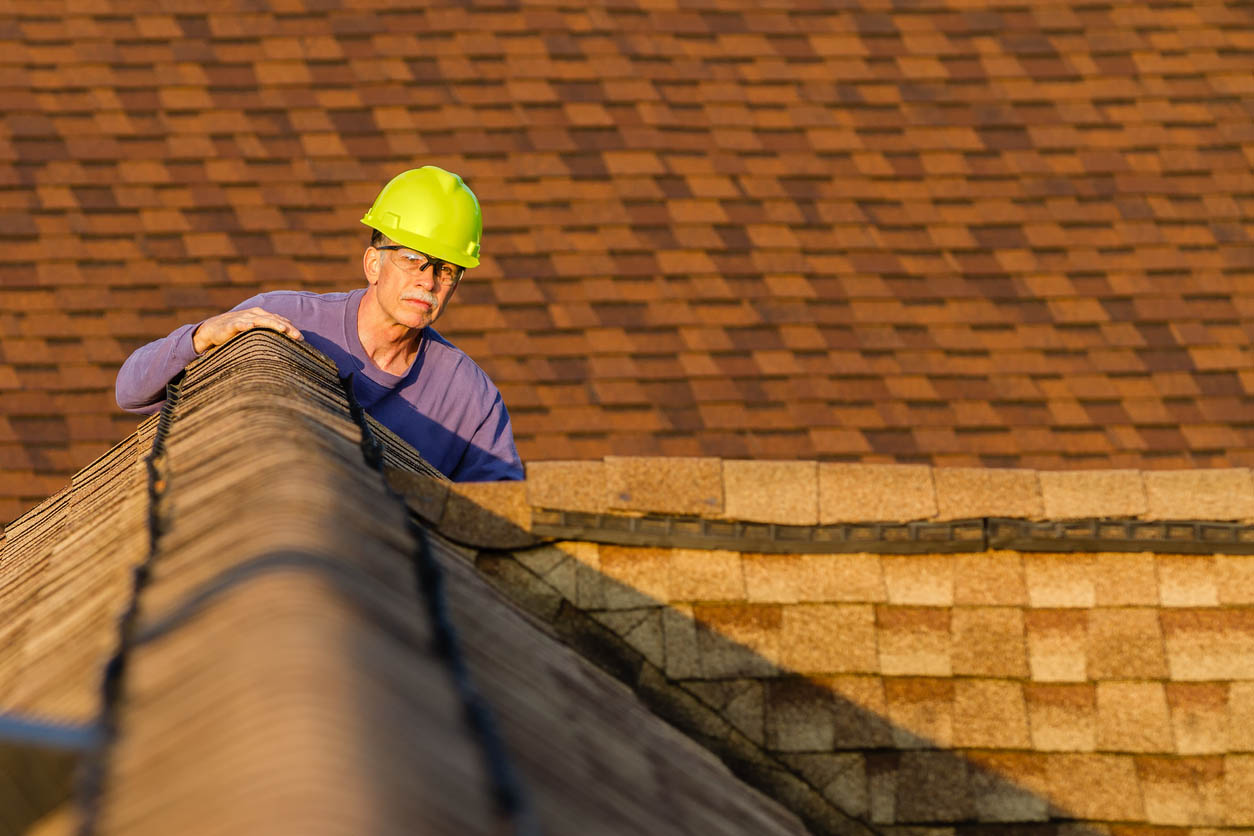
Home Inspection Cost: Other Types of Home Inspections
Depending on the location and age of the home, there may be additional elements of the home inspection that are optional (or required) add-ons. Consider these carefully, and discuss why you might need these kinds of inspection tacked on to the standard package.
Radon Testing
Radon is a colorless, odorless gas that can rise from voids underneath homes and enter through tiny cracks or openings in the foundation. It occurs naturally and dissipates quickly outdoors but is radioactive and, if it accumulates indoors, has been linked to lung cancer. It’s most likely to be found in the Northeast and upper Midwest but can occur anywhere in the United States. Testing requires equipment set up in the home (usually in the basement), left undisturbed for a period of time, and then collected and tested. It will add about $150 to the cost of the inspection.
Lead Testing
Until 1978, lead was a primary ingredient in paint used on home interiors and was the material from which most home water pipes were manufactured. When lead rots and chips into drinking water or children ingest flakes, it can cause developmental problems in children and illness in adults. Even though these materials are slowly being eradicated and replaced, older homes may still have lead paint hiding under layers of latex. Lead pipes in the walls may still be leaching the material into the drinking water. A lead test will cost about $300, but removing lead can cost in the range of $950 to $2,300.
Mold Testing
Mold is insidious; it is present in every home, and at low levels isn’t a huge problem for anyone but the most sensitive allergy sufferers. However, if your inspector finds evidence of water damage in the home or if your family has respiratory problems, a mold test is a worthwhile addition to an inspection. Depending on the type of testing, mold inspections can cost $820 on average.
Asbestos Testing
Commonly used in floor tiling and glue until the late 1970s and as insulation on furnaces and ducts, asbestos is linked with certain types of lung and brain cancers. It’s not dangerous unless disturbed, but removal must be handled as a hazmat situation with negative air pressurization and tenting of the affected areas. Asbestos testing is done by sampling suspected materials and sometimes by air quality testing and will cost about $600. Given the fact that asbestos removal can cost up to $30,000 depending on the size of the job, it’s worth having the testing done before you commit to purchasing a home.
Sewer Scope
Older homes may still have ceramic or terra cotta pipes leading from their main sewer drain to the city sewer pipe. These pipes are easily infiltrated by tree roots and blocked, or they can crack and leak sewage into the surrounding soil. Even metal pipes are not immune to invasive roots. A sewer inspector will send a scope through a pipe access in the home through the line to the street connection to check for damage and blockages. Often a blockage that’s found early can be drilled out at a low cost. Still, if the pipes are damaged and require replacement, the cost will rise into the thousands of dollars depending on how far the house is from the street connection, making the extra cost (between $85 and $300) of the sewer inspection a good investment.
Termite Inspection
Their small size means termites don’t look destructive, but one nest can cause more structural damage than you can imagine—sometimes enough to render the building irreparable and lead to a home’s condemnation. Repairs can cost between $200 and $8,000, depending on the damage. Some inspections may include termite inspection—if it’s not in your contract, it’s certainly something you should add.
Chimney Inspection
A chimney inspection will identify cracks in the brickwork and mortar, along with problems in the liner (if there is one), venting capability, and cap. It will cost between $360 and $400 and might be added on to the basic inspection. A chimney inspection is especially important if you plan to use a working fireplace or if your furnace vents primarily through the chimney to prevent chemical and smoke backup and chimney fires.
Electrical Inspection
A basic home inspection will cover checking the outlets and fixtures to make sure they work, checking the fuse or breaker panel to make sure it’s up to code, and ensuring that outlets in wet areas are GFCI outlets with inherent breakers. Anything beyond that will fall under the auspices of a dedicated electrical inspection. An electrical inspection will dig more deeply into outlets, check for arcs or aging wiring, and check connection points for rodent damage or insulation failure. This should cost between $110 and $125 and may be performed by your inspector or a separate professional.
Plumbing Inspection
Your inspector will make sure the faucets turn on and off, that the toilets flush and the dishwasher and clothes washer fill and drain, and will measure the basic water pressure. A plumbing inspection will look at connections, the age and security of the pipes, and hunt for leaks or weak spots in the system. Expect to pay an additional $180 to $225 for this added service.
Pool Inspection
For some buyers, a home with a pool is a dream come true, while for others, it’s a feature they’re willing to accept because they like the rest of the property. Either way, it’s critical to know what you’re getting into: Pools are expensive to maintain when they’re in great condition, but often flaws, cracks, antiquated filtration systems, or other structural problems aren’t immediately obvious to the untrained eye. A pool inspection will add $75 to $350 (depending on the type and age of the pool) to the total inspection cost.
Roof Inspection
An inspector will take a quick look at a roof, but a thorough roof inspection costs between $290 and $350 and involves a complete examination of the layers of the roof, the flashing, drip guards, and gutters, along with an assessment of the age and condition and any needed repairs.
Septic Tank Inspection
If the home has a septic tank, it’s critical to know how old it is and what kind of condition it’s in. A septic tank inspection will include a scope and camera inspection of the interior, an assessment of its lifespan, and a report on its general condition. This service will cost between $100 and $250.
Home Inspection Cost: When Do You Need a Home Inspection?
Usually, you hear about home inspections as a way to protect your investment when you’re buying a home. There are, however, other occasions when an inspection can be useful.
Selling Your House
Planning to put your home on the market? Buyers will want an inspection and will use the results to haggle the price. There is an argument for having your own inspection completed and using the results to decide which repair or upgrades you’d like to handle before listing the home. This way, instead of negotiating and potentially taking on projects as you’re trying to move, you can budget and set the home price based on repairs you know the buyer will need to handle and comfortably set a price. If the inspection reveals a lot of problems, you may realize that your timeline for placing the house on the market isn’t realistic.
It is important to note that real estate contracts in most states require a seller to fill out disclosure forms. Any problems you discover through a preemptive inspection must be disclosed on these forms or the sale could be considered fraudulent. If you’re concerned that there are issues you don’t want to know about or don’t want to disclose, bear that in mind before scheduling the inspection.
Buying a House
For most people, a home purchase is the largest investment they’ll ever make. They’re sinking years of savings into a down payment and signing up for years of debt. It is a purchase fraught with risk: Will the market tank and leave them with no equity or resale value? Will the heating system collapse entirely, or will a tornado force repairs they can’t afford? Some homeownership expenses and emergencies are unavoidable, but an inspection can go a long way toward alleviating concerns and preventing purchases of homes with problems that aren’t immediately obvious.
Safety and Maintenance
Even if you plan to remain in your home for the foreseeable future, if it’s been 10 years since your initial home inspection, schedule one just to check on the systems’ safety. Ideally, you’ve been performing maintenance all along, but there are some systems that don’t show signs of a problem until it’s too late. An inspection can reassure you that your home is in good working order and help you compile a useful list of which maintenance tasks need to be completed sooner rather than later.
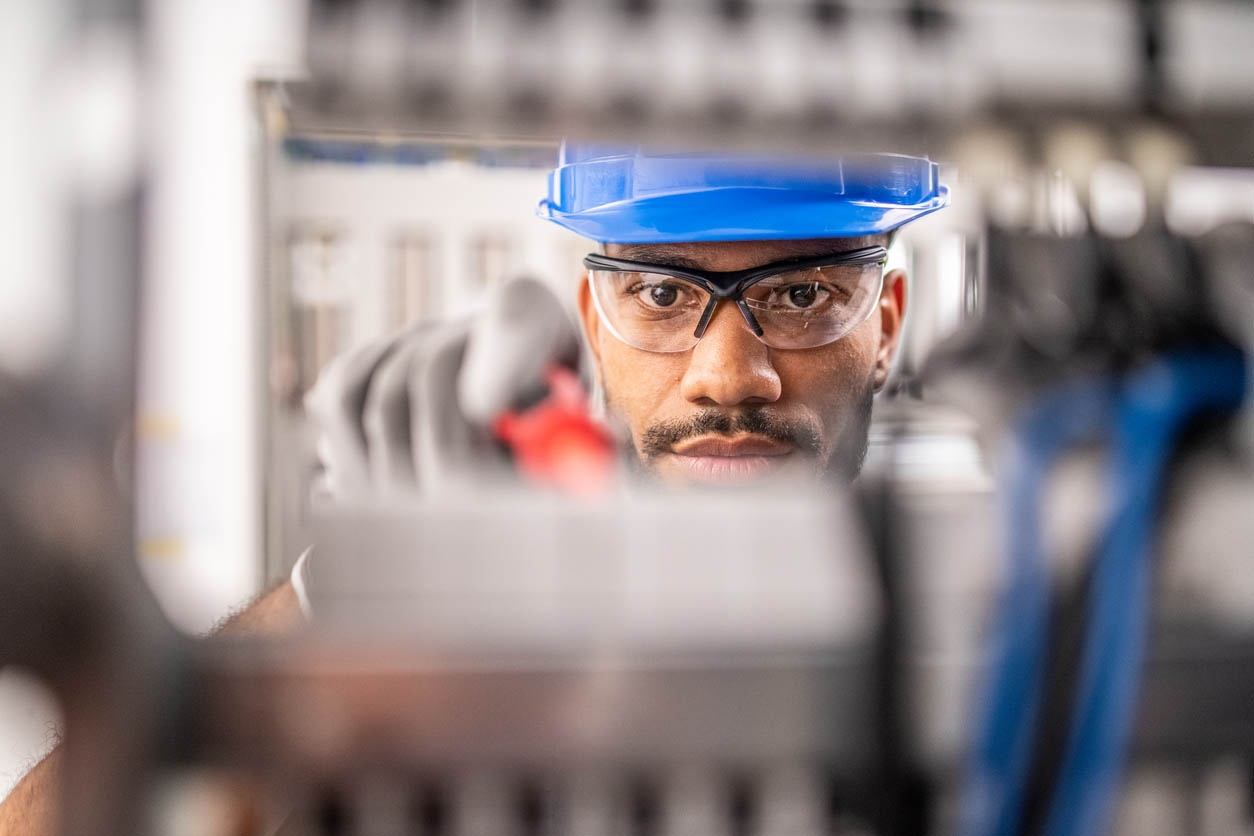
Home Inspection Cost: DIY vs. Hiring a Professional
A home inspection is not a DIY project. If you’re a home buyer, you’ve done your part already: You’ve chosen a home that looks solid on the outside and isn’t obviously failing. If you’re a seller or homeowner, you’ve maintained the property well and kept up with any obvious problems. The job of the professional home inspector is to search out the problems that are not obvious, and this requires a trained eye with knowledge of nearly every home system and the signs of degradation or danger. The DIY part is complete if you’re considering an inspector; if you’ve made it to that point, hire one.
How to Save Money on Home Inspection Costs
An inspection may seem like an expense that’s too much on top of everything else, especially when you factor in additional inspection components or costs. There are some ways you can cut down on the costs and ensure the inspection pays off in the long run.
- Get multiple recommendations from friends, real estate agents, or local neighborhood boards, then get quotes from several of them before choosing one to make sure you get the most complete inspection for your money.
- Clear a path for the inspector to work in. The inspector can report on only what they see, so make sure the breaker box, crawl spaces, and closets are accessible.
- Make sure all bulbs are working and all remotes (for the gas fireplace, ceiling fans, HVAC units, garage doors, and so on) are available and have batteries. This saves time and helps the inspector know if there’s a problem to investigate with the fixtures themselves or just a burnt-out bulb or missing remote.
- Attend the inspection: You’ll want to make sure that everything that’s included is inspected.
- Include as many additional inspection elements as you can afford, especially those that involve water and mold testing; this will make the inspection more complete and save money in the long run.
- If the inspector recommends a specialist inspector for a particular issue, get one. The inspectors won’t make extra money off of this and will only recommend one if they suspect a larger issue.
- Ask lots of questions, both before you hire and during the inspection itself. It’s important to understand what the inspector is looking at and why it is or could be a problem.
Questions to Ask About Home Inspection Costs
Pepper your inspector with questions; make sure you understand what the inspector recommends (and what those recommendations mean). Here are some of the questions you should ask during the process.
Before you hire a home inspector:
- What will you check? What won’t you check?
- What inspection components can be added to the contract? Which do you recommend for my home? Why?
- Can I see a sample report? (It’s helpful to understand the layout of the report and will help you understand the process more completely.)
- Can I attend the inspection? (If the answer is no, consider hiring a different inspector.)
- What will the total cost be? Is there anything that might change that?
- What are the payment arrangements?
During the inspection:
- What does that mean?
- Is this a minor problem or a big deal?
- What do you see as the biggest concern about this home?
- I’ve never owned a home with gas heat. Are there maintenance practices I should plan on?
- Point out anything you see that looks wrong to you. The worst-case scenario is that you’re a little annoying. The benefit is that you learn what to be concerned about and what’s normal to see.
After the inspection:
- Can you explain this in more detail? (As you watch the inspector move around, their previous comments should be percolating in your head. Ask for additional information anywhere you need it.)
- What would you do? (Especially if a large problem is uncovered, ask the inspector for their opinion. They’re experts and surely have them.)
- Is there another expert I should call in? (The inspector will have flagged anything that needs work, but it’s worth checking the things they think can be handled by the homeowner—or you—and which require a professional.)
- Is there anything I should do immediately after I move in?
FAQs
A home inspection is, simply, a good investment that helps you make decisions about one of the largest purchases you’ll ever make. You’ll want to choose your home inspector carefully and ask a lot of questions along the way. These are a few of the questions we hear most often; their answers should help you get started.
Q. What’s included in the home inspection cost?
A home inspection is a surface examination of a home. It includes a visual inspection of appliances, plumbing, electrical, HVAC, basement, foundation, roof, attic, and fireplaces, along with a general look at the interior and exterior. While these will be included in the basic cost, an inspector may include other items (termite inspections or other types of testing), or those may be added on as itemized costs. Ask your contractor for a list of what’s included in their particular package.
Q. What problems can a home inspection uncover?
The biggest problems home inspections uncover are usually structural: foundation cracks, slumps, or undermines; failed flooring joists; and basement egresses that aren’t up to code. Mold can be a significant find as well, because it’s not immediately obvious if it’s hidden. Clogged sinks and slow drains, electrical work that isn’t up to code, and aging furnaces and air conditioners are other problems a home inspector may uncover and recommend for repair.
Q. Are there any other home inspection costs that I should know about?
There are a number of tests and inspections not covered in a basic inspection that you should consider adding on, such as asbestos, radon, mold, and lead testing, along with sewer and septic tank inspections. Some buyers like to add on an inspection of the trees on and near the property, while others choose to pay extra for inspection of outbuildings. Your inspector may itemize these charges. Finally, if you’re having an inspection done on your own home for maintenance purposes or because you’re planning to sell your home, an inspection can be followed by a lot of costs—once you’re aware of a problem, you’ll have to fix it or be on the hook to disclose it in the event of a sale, so be prepared to cover those repairs.

